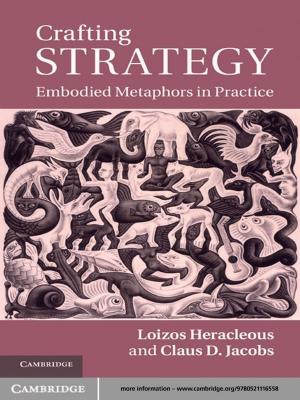Nietzsche's Anti-Darwinism
Nonfiction, Religion & Spirituality, Philosophy, Modern, Science & Nature, Science| Author: | Dirk R. Johnson | ISBN: | 9780511849121 |
| Publisher: | Cambridge University Press | Publication: | August 12, 2010 |
| Imprint: | Cambridge University Press | Language: | English |
| Author: | Dirk R. Johnson |
| ISBN: | 9780511849121 |
| Publisher: | Cambridge University Press |
| Publication: | August 12, 2010 |
| Imprint: | Cambridge University Press |
| Language: | English |
Friedrich Nietzsche's complex connection to Charles Darwin has been much explored, and both scholarly and popular opinions have tended to assume a convergence in their thinking. In this study, Dirk Johnson challenges that assumption and takes seriously Nietzsche's own explicitly stated 'anti-Darwinism'. He argues for the importance of Darwin for the development of Nietzsche's philosophy, but he places emphasis on the antagonistic character of their relationship and suggests that Nietzsche's mature critique against Darwin represents the key to understanding his broader (anti-)Darwinian position. He also offers an original reinterpretation of the Genealogy of Morals, a text long considered sympathetic to Darwinian naturalism, but which he argues should be taken as Nietzsche's most sophisticated critique of both Darwin and his followers. His book will appeal to all who are interested in the philosophy of Nietzsche and its cultural context.
Friedrich Nietzsche's complex connection to Charles Darwin has been much explored, and both scholarly and popular opinions have tended to assume a convergence in their thinking. In this study, Dirk Johnson challenges that assumption and takes seriously Nietzsche's own explicitly stated 'anti-Darwinism'. He argues for the importance of Darwin for the development of Nietzsche's philosophy, but he places emphasis on the antagonistic character of their relationship and suggests that Nietzsche's mature critique against Darwin represents the key to understanding his broader (anti-)Darwinian position. He also offers an original reinterpretation of the Genealogy of Morals, a text long considered sympathetic to Darwinian naturalism, but which he argues should be taken as Nietzsche's most sophisticated critique of both Darwin and his followers. His book will appeal to all who are interested in the philosophy of Nietzsche and its cultural context.















